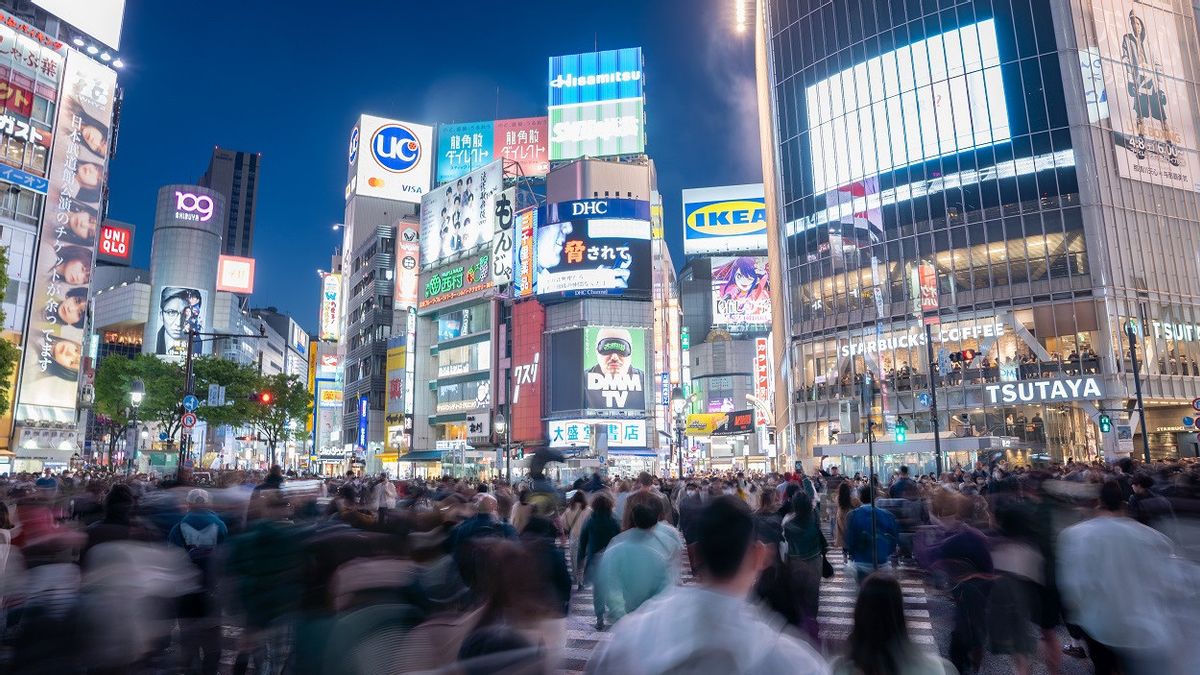JAKARTA - One of the most popular tourist areas in Tokyo, Japan has decided to limit consumption of alcoholic beverages in public places starting next October.
The move will prohibit drinking alcohol on the streets or public places in Shibuya from 6 p.m. to 5 a.m. every day, with legal age for drinking alcohol in Japan being 20 years.
The city of Shibuya, which is a district with its own government in Tokyo, can make its own regional regulations.
"We've been increasing patrols and other efforts over the past year, but there's been people saying, 'Well, regulations say you can drink, right?' By setting this rule, we want to convey the district's intentions, including during patrols, we'd rather people enjoy their drinks inside restaurants, "explained Mayor Ken Hasebe, launching CNN June 3.
Last fall, Shibuya banned Halloween-related activities in the district, with alcohol being cited as the main reason behind the ban. Including a ban on drinking alcohol outside bars and restaurants.
Mayor Hasebe said local businesses supported the regulation in October 2023 and were behind the push to make it permanent.
"The excessive damage caused by tourism has become serious, resulting in property damage caused by street drinking, quarrels with local residents, and large disposal of cans and empty bottles," the city said in a statement last October.
Shibuya itself is home to some of the most popular tourist attractions in the capital, including the Meiji Temple, Yoyogi Park and "Shibuya contest" which are believed to be the busiest intersections in the world.
It is known, Japan has struggled to cope with excessive tourism since it reopened completely after the pandemic. More than three million tourists visited the country in April and May this year, with the trend likely to continue throughout the summer.
Educating visitors about local culture has become a large component in dealing with the entry of international tourists.
In the historic city of Kyoto, where Geisha and her students (miko) can be found around ancient alleys, local residents have tried to find ways to prevent foreigners from disturbing women as they leave and return from work.
SEE ALSO:
Kyoto's official tourism office has put up posters and distributed pamphlets about various social customs in Japan, ranging from how to use toilets to whether it is okay to tip. The suggestion also applies to Geisha, by asking visitors not to touch women, wear their toilets, or take their photos without permission.
Local Gion residents have also taken some action on their own, such as closing personal alleys.
However, "explained Geisha" and other disruptive tourists still cause conflict between visitors and local residents.
The English, Chinese, Japanese, Arabic, and French versions are automatically generated by the AI. So there may still be inaccuracies in translating, please always see Indonesian as our main language. (system supported by DigitalSiber.id)














